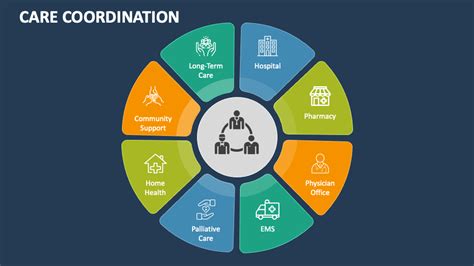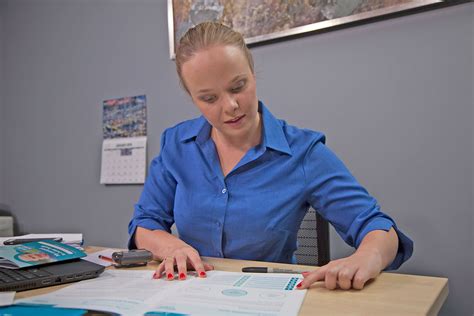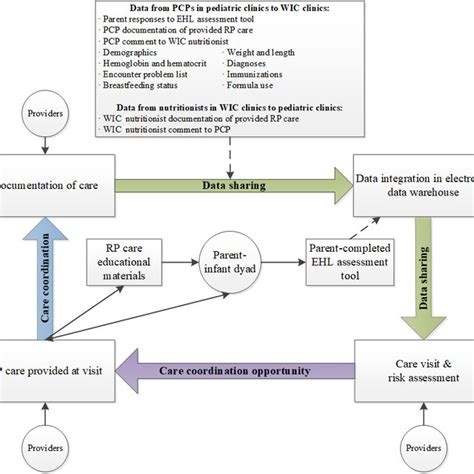Intro
As the healthcare landscape continues to evolve, the role of a care coordinator has become increasingly important in ensuring that patients receive high-quality, patient-centered care. But what exactly is a care coordinator, and how do they contribute to the healthcare system?
In simple terms, a care coordinator is a healthcare professional responsible for organizing and coordinating patient care services. Their primary goal is to ensure that patients receive seamless, comprehensive care that addresses their physical, emotional, and social needs. Care coordinators work closely with patients, families, healthcare providers, and community resources to develop and implement personalized care plans that promote optimal health outcomes.
The importance of care coordination cannot be overstated. With the rise of chronic diseases, an aging population, and the increasing complexity of healthcare services, patients often find themselves navigating a fragmented and confusing healthcare system. Care coordinators help bridge this gap by facilitating communication, reducing medical errors, and streamlining care transitions.

Benefits of Care Coordination
So, what are the benefits of care coordination? Here are just a few:
- Improved patient outcomes: Care coordinators help patients adhere to treatment plans, manage chronic conditions, and access necessary resources, leading to better health outcomes.
- Enhanced patient experience: By streamlining care transitions and facilitating communication, care coordinators reduce patient frustration and anxiety, leading to higher patient satisfaction.
- Reduced healthcare costs: Care coordinators help reduce unnecessary hospitalizations, emergency department visits, and medical errors, resulting in cost savings for patients, payers, and healthcare providers.
- Increased efficiency: Care coordinators help healthcare providers manage their workload more effectively, reducing administrative burdens and allowing them to focus on high-value care.
Key Responsibilities of a Care Coordinator
So, what does a care coordinator do on a daily basis? Here are some key responsibilities:
- Assess patient needs: Care coordinators conduct comprehensive assessments to identify patients' physical, emotional, and social needs.
- Develop care plans: Based on patient assessments, care coordinators develop personalized care plans that outline treatment goals, interventions, and resources.
- Coordinate care services: Care coordinators arrange for necessary care services, such as home health care, transportation, and medical equipment.
- Communicate with healthcare providers: Care coordinators facilitate communication between patients, families, and healthcare providers to ensure seamless care transitions.
- Monitor patient progress: Care coordinators track patient progress, identify potential issues, and adjust care plans as needed.

Types of Care Coordinators
While care coordinators work in various healthcare settings, there are several types of care coordinators, including:
- Transitional care coordinators: These care coordinators focus on facilitating care transitions from hospital to home or other care settings.
- Chronic care coordinators: These care coordinators work with patients who have chronic conditions, such as diabetes or heart failure, to manage their conditions and prevent complications.
- Pediatric care coordinators: These care coordinators work with children and families to coordinate care services and address the unique needs of pediatric patients.
- Geriatric care coordinators: These care coordinators work with older adults to address their complex care needs and promote healthy aging.
Skills and Qualifications of a Care Coordinator
To be successful as a care coordinator, one needs a combination of skills and qualifications, including:
- Strong communication skills: Care coordinators must be able to communicate effectively with patients, families, and healthcare providers.
- Clinical knowledge: Care coordinators need a basic understanding of healthcare services, medical conditions, and treatment options.
- Organizational skills: Care coordinators must be able to prioritize tasks, manage multiple patients, and coordinate care services.
- Empathy and compassion: Care coordinators must be able to empathize with patients and families, providing emotional support and guidance.

Challenges and Opportunities in Care Coordination
While care coordination offers many benefits, there are also challenges and opportunities to consider:
- Fragmented healthcare system: Care coordinators often face challenges navigating a fragmented healthcare system, where providers and payers may have different priorities and incentives.
- Limited resources: Care coordinators may face limited resources, including staffing shortages, inadequate technology, and insufficient funding.
- Patient engagement: Care coordinators must engage patients and families in the care coordination process, which can be challenging, especially for patients with limited health literacy or social support.
Despite these challenges, care coordination offers many opportunities for innovation and improvement, including:
- Telehealth and digital health: Telehealth and digital health technologies can enhance care coordination by facilitating remote communication and monitoring.
- Value-based care: Value-based care models, such as accountable care organizations (ACOs) and bundled payment initiatives, incentivize care coordination and population health management.
- Interprofessional collaboration: Care coordination requires interprofessional collaboration, which can foster a culture of teamwork and improve patient outcomes.

Conclusion
In conclusion, care coordination is a critical component of the healthcare system, ensuring that patients receive seamless, comprehensive care that addresses their physical, emotional, and social needs. Care coordinators play a vital role in facilitating care transitions, communicating with healthcare providers, and promoting patient engagement. While challenges and opportunities exist in care coordination, the benefits of care coordination are clear, and its importance will only continue to grow as the healthcare landscape evolves.
We invite you to share your thoughts and experiences with care coordination. Have you worked with a care coordinator or received care coordination services? What benefits or challenges have you encountered? Share your comments below!
What is care coordination?
+Care coordination is the process of organizing and coordinating patient care services to ensure seamless, comprehensive care that addresses patients' physical, emotional, and social needs.
What are the benefits of care coordination?
+The benefits of care coordination include improved patient outcomes, enhanced patient experience, reduced healthcare costs, and increased efficiency.
What are the key responsibilities of a care coordinator?
+Care coordinators assess patient needs, develop care plans, coordinate care services, communicate with healthcare providers, and monitor patient progress.
